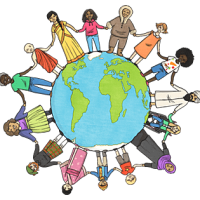Human trafficking is a pervasive and insidious crime that affects millions of individuals worldwide. It is a violation of human rights that exploits vulnerable populations, often involving forced labor, sexual exploitation, and involuntary servitude. The United Nations estimates that approximately 40 million people are victims of modern slavery, with women and children disproportionately affected.
This issue transcends borders, cultures, and socioeconomic statuses, making it a global crisis that demands urgent attention and action. The complexity of human trafficking is compounded by factors such as poverty, lack of education, and political instability, which create fertile ground for traffickers to prey on the vulnerable. The fight against human trafficking requires a multifaceted approach that includes prevention, protection, and prosecution.
Non-governmental organizations (NGOs) play a crucial role in this battle by providing essential services such as victim support, awareness campaigns, and advocacy for policy changes. However, the effectiveness of these organizations often hinges on their ability to secure funding through grants. Without adequate financial resources, NGOs may struggle to implement their programs and reach the individuals who need help the most.
Therefore, understanding the landscape of grant opportunities is vital for organizations dedicated to combating human trafficking.
The Importance of Grants for Organizations Fighting Human Trafficking
Grants serve as a lifeline for organizations working to combat human trafficking. They provide the necessary financial support to develop and sustain programs that address the various facets of this issue. From direct services for victims to community education initiatives, grants enable NGOs to expand their reach and enhance their impact.
For instance, organizations can use grant funding to hire trained staff, develop educational materials, and conduct outreach activities that raise awareness about the signs of trafficking and available resources. Moreover, grants can facilitate collaboration among different stakeholders in the anti-trafficking movement. By pooling resources and expertise, organizations can create comprehensive strategies that address the root causes of trafficking while also providing immediate assistance to victims.
For example, a grant might fund a partnership between a local NGO and law enforcement agencies to improve victim identification and referral processes. Such collaborations not only strengthen the overall response to human trafficking but also foster a sense of community ownership in addressing this critical issue.
Criteria for Selecting the Best Grants for Anti-Trafficking Organizations
When seeking grants, anti-trafficking organizations must carefully evaluate potential funding opportunities to ensure they align with their mission and objectives. One key criterion is the grant’s focus area; organizations should prioritize grants that specifically target human trafficking or related issues such as gender-based violence or labor exploitation. This alignment ensures that the funding will directly support the organization’s work and maximize its impact.
Another important factor is the grant’s eligibility requirements. Organizations should thoroughly review these criteria to determine if they meet the necessary qualifications. This includes assessing whether the grant is open to local or international NGOs, as well as any specific conditions related to project scope or geographic focus.
Additionally, organizations should consider the grant’s funding amount and duration; understanding these aspects can help in planning sustainable programs that can continue beyond the initial funding period.
Top 10 Grants for Organizations Fighting Human Trafficking
1. The U.S. Department of Justice’s Office for Victims of Crime (OVC) provides various grants aimed at supporting services for victims of human trafficking.
These grants often focus on enhancing victim assistance programs and improving access to critical services. 2. The U.S.
Department of Health and Human Services (HHS) offers funding through its Administration for Children and Families (ACF) to support projects that provide services to victims of trafficking, including housing assistance and mental health services. 3. The United Nations Voluntary Trust Fund for Victims of Human Trafficking provides financial support to NGOs working directly with victims.
This fund aims to enhance the quality of services offered to survivors globally. 4. The Global Fund for Human Rights offers grants to organizations that work on innovative solutions to combat human trafficking and promote human rights protections.
5. The Freedom Fund focuses on ending modern slavery in specific regions through targeted funding initiatives that support local organizations working on prevention, rescue, and rehabilitation efforts. 6.
The Oak Foundation provides grants for projects that address social justice issues, including human trafficking. Their funding often supports innovative approaches to prevention and victim support. 7.
The NoVo Foundation funds initiatives aimed at ending violence against women and girls, including those affected by trafficking. Their grants often support grassroots organizations working directly with survivors. 8.
The International Organization for Migration (IOM) offers funding opportunities for projects that aim to combat human trafficking through awareness-raising campaigns and capacity-building initiatives. 9. The Anti-Trafficking Program by the Bureau of International Narcotics and Law Enforcement Affairs (INL) provides grants to support international efforts in combating human trafficking through law enforcement training and victim assistance programs.
10. The European Commission offers various funding opportunities through its Rights, Equality and Citizenship Programme, which supports projects aimed at preventing and combating all forms of violence against women, including trafficking.
Grant Opportunities for International Anti-Trafficking Organizations
International anti-trafficking organizations face unique challenges due to the cross-border nature of trafficking itself. As such, they require specialized funding opportunities that can support their global initiatives. One prominent source is the European Union’s Horizon Europe program, which funds research and innovation projects aimed at addressing societal challenges, including human trafficking.
This program encourages collaboration among international partners, fostering innovative solutions that can be implemented across different countries. Another significant opportunity is provided by the United Nations Office on Drugs and Crime (UNODC), which offers grants for projects focused on strengthening international cooperation in combating human trafficking. These grants often emphasize capacity building within law enforcement agencies and judicial systems in various countries, ensuring a more coordinated global response to this issue.
Additionally, international NGOs can explore funding from philanthropic foundations that prioritize global human rights initiatives, such as the Open Society Foundations or the Ford Foundation.
Grant Opportunities for Local Anti-Trafficking Organizations
Local anti-trafficking organizations play a critical role in addressing the specific needs of their communities while providing direct services to victims. To support these efforts, various grant opportunities are available at the local level. Community foundations often offer small grants aimed at supporting grassroots initiatives that tackle social issues within specific regions.
These grants can be particularly beneficial for local NGOs looking to implement targeted awareness campaigns or victim support services tailored to their community’s unique context. Additionally, state and local government agencies frequently allocate funds for anti-trafficking initiatives as part of broader public safety or social service programs. Organizations should actively seek out these opportunities by engaging with local government representatives and staying informed about upcoming funding announcements.
Furthermore, partnerships with local businesses can also yield financial support; many companies are eager to contribute to community welfare initiatives as part of their corporate social responsibility programs.
Tips for Applying for Anti-Trafficking Grants
Applying for grants can be a daunting process, but with careful preparation and strategic planning, anti-trafficking organizations can increase their chances of success. First and foremost, it is essential to thoroughly read the grant guidelines and understand the funder’s priorities. Tailoring proposals to align with these priorities demonstrates an organization’s commitment to addressing the funder’s specific goals while showcasing how their work contributes to broader anti-trafficking efforts.
Another critical tip is to develop a clear and compelling narrative in grant applications. Funders want to understand not only what an organization plans to do but also why it matters. Providing real-world examples of past successes or outlining specific needs within the community can help paint a vivid picture of the organization’s impact.
Additionally, including measurable outcomes in proposals allows funders to see how their investment will lead to tangible results. Building relationships with funders can also be advantageous; reaching out before submitting an application can provide valuable insights into what they are looking for in proposals. Finally, organizations should not hesitate to seek feedback on their applications from peers or mentors in the field; constructive criticism can help refine proposals and improve future submissions.
Conclusion and Resources for Further Assistance
The fight against human trafficking is an ongoing battle that requires dedication, collaboration, and adequate resources. Grants play an essential role in empowering organizations committed to this cause by providing them with the financial means necessary to implement effective programs and reach those in need. By understanding the landscape of available funding opportunities—both at local and international levels—anti-trafficking organizations can strategically position themselves to secure vital resources.
For further assistance in navigating grant opportunities, organizations can turn to various resources such as GrantStation or Foundation Center, which offer databases of available grants tailored to specific sectors like anti-trafficking efforts. Additionally, networking with other NGOs through platforms like LinkedIn or attending conferences focused on human rights can provide valuable insights into successful grant-seeking strategies. Ultimately, by leveraging these resources and employing best practices in grant applications, organizations can enhance their capacity to combat human trafficking effectively and make a lasting difference in the lives of survivors worldwide.









































